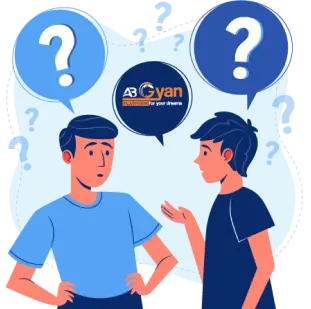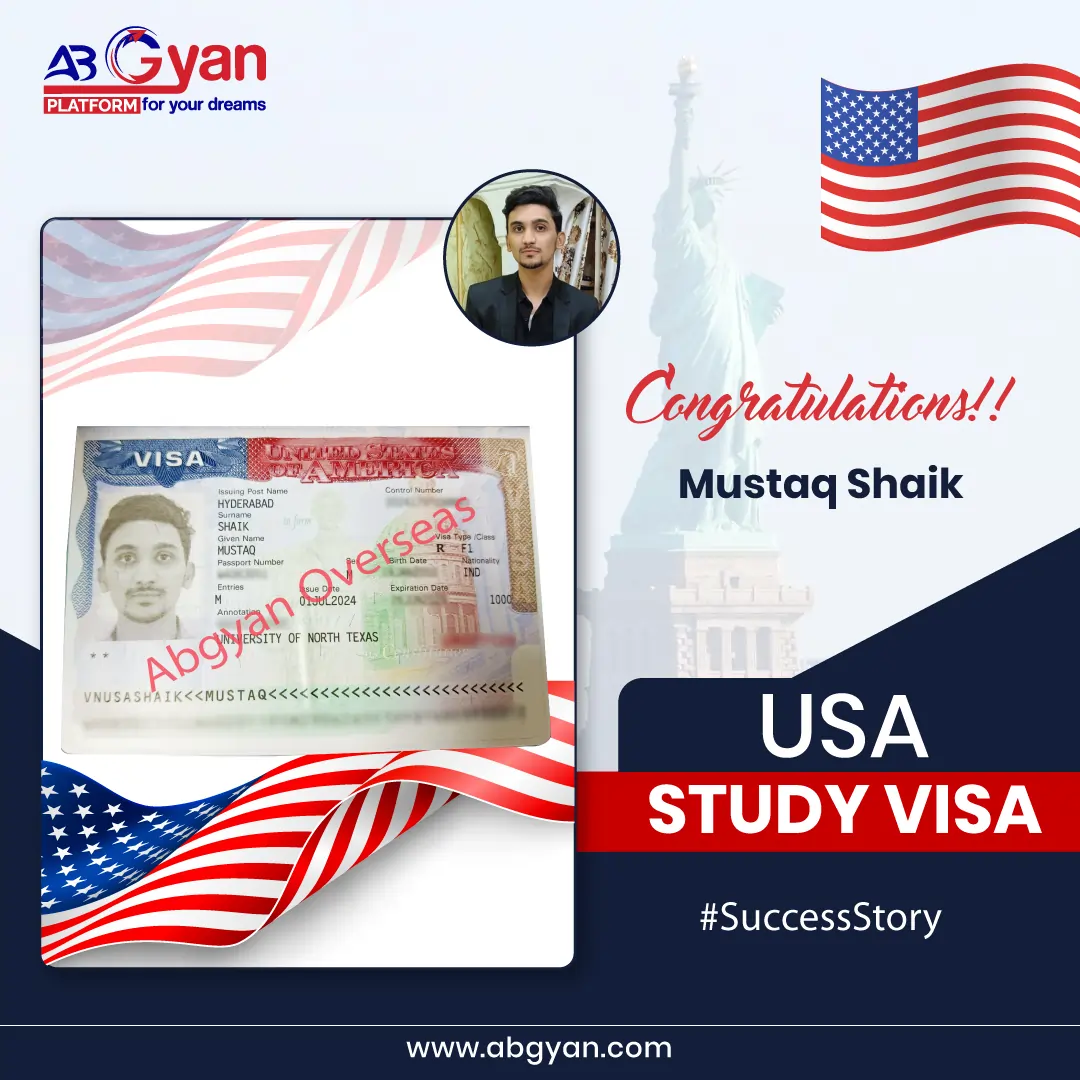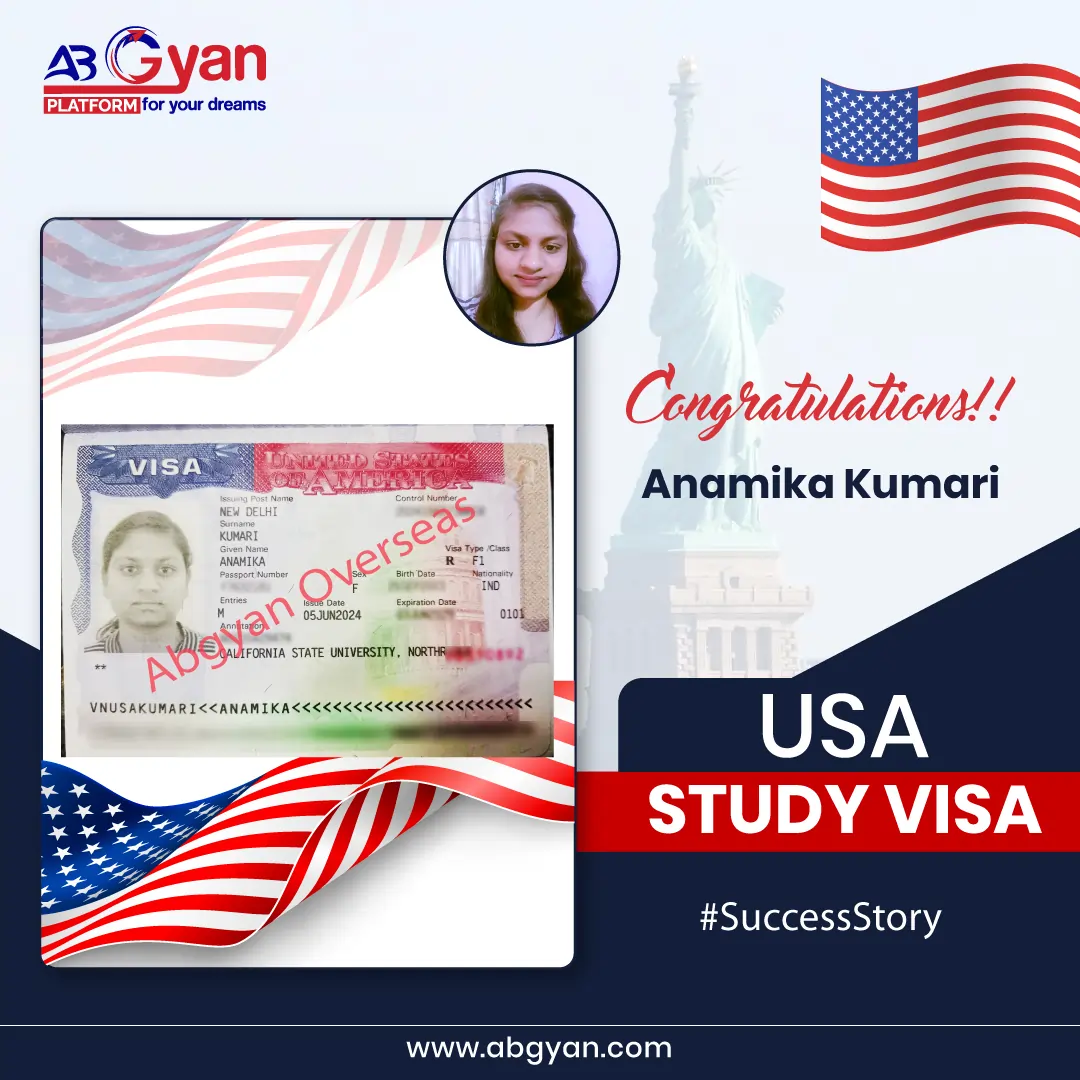
Crack GRE With 318+ Score in first go by getting training from
Brief Overview of the GRE Training Course
GRE (Graduate Record Exam) is a standardized test that measures verbal reasoning, quantitative reasoning, and analytical writing skills. The GRE entrance exam is widely used for graduate and business school admissions. The computer-based test island the GRE Exam Pattern includes sections on analytical writing (two tasks), verbal reasoning, and quantitative reasoning. The verbal and quantitative sections are adaptive and adjust question difficulty based on answers. The GRE is intended to assess a candidate's readiness for advanced-level college study.
Meet our Advisors Now
(Mon to Sat 10:00 AM to 6:00 PM IST)
Analytical Writing (AWA)

Duration
30 MinutesQuestions
1 QuestionsVerbal Reasoning

Duration
47 MinutesQuestions
27 Questions
Quantitative Reasoning

Duration
41 MinutesQuestions
27 Questions
Integrated Reasoning

Duration
30 MinutesQuestions
12 QuestionsCourse Training Content
The GRE Analytical Writing (AWA) section is designed to assess candidates' ability to analyze and clearly present complex ideas, as well as construct and support arguments.
The AWA section includes two tasks: an Issue Task and a Debate Task
Issue Task
In the problem-solving task, candidates are given a statement or assertion about a general topic and asked to express their opinion on that matter. Topics are diverse and cover a wide range of topics including education, politics, technology, and society.
- Instructions: Candidates are required to respond to the given problem by developing an argument and giving reasons and examples to support their views. Emphasis is placed on the ability to present coherent and well-organized feedback within a specified time frame.
- Time limit: Candidates have 30 minutes to complete the problem.
Debate task
In the debate task, candidates are given a specific argument or set of arguments.
Their task is to critically analyze the reasons behind the argument(s) presented and evaluate their plausibility.
Unlike the problem-solving task, which requires candidates to make their own arguments, the Argument task assesses the ability to evaluate and critique an existing argument.
- Instructions: Candidates should identify and discuss errors or weaknesses in the arguments put forward, thereby demonstrating analytical skills. It is important to consider the underlying assumptions, evidence, and logical structure of the argument.
- Time limit: Candidates have 30 minutes to complete the debate.
AWA Objective Section
The main objective of the GRE AWA section is to assess a candidate's ability to:
- Express complex ideas: Candidates must demonstrate the ability to express clear, logical and coherent ideas. This includes organizing thoughts, using appropriate vocabulary, and developing nuanced responses.
- Both tasks require the ability to construct convincing arguments.
- In the thematic task, this involves forming an initial position and supporting it with reasons and examples.
- In the Argument task, the focus is on critically evaluating an existing argument and identifying its strengths and weaknesses.
- Applicants are also assessed on their writing skills, including grammar, sentence structure and overall writing proficiency
The AWA section does not assess specific content knowledge but rather emphasizes the candidate's ability to think critically and communicate effectively.
Scores for the AWA section range from 0 to 6, in half-point increments, and are based on the overall quality of the written responses.
This section provides the admissions committee with insight into the applicant's analytical and communication skills, which are important in academic and professional settings.
The Verbal Reasoning section of the GRE is designed to measure a test taker's ability to understand, analyze, and interpret written material.
It includes three main question types: Reading Comprehension, Text Completion and Sentence Equivalence.
Comprehension Article
Comprehension questions assess candidates' ability to understand and analyze passages in many different areas, including humanities, social sciences, natural sciences and business.
- Format: Each passage is followed by a series of questions that may focus on main ideas, specific details, author's tone, inferences, or logical structure of the text.
- Objective: Assesses candidates' comprehension skills, critical thinking skills, and ability to extract relevant information from complex written documents.
Text Completion
Text completion questions assess candidates' understanding of sentence structure and vocabulary. In these questions, a sentence or paragraph has one to three spaces and candidates must choose the correct words or phrases to fill in the blanks from the list provided.
- Format: Completion options are usually presented in a drop-down menu and correct answers must be selected in the correct order.
- Objective: Assess candidates' ability to understand the overall meaning of a sentence or paragraph and to choose appropriate words to maintain coherence and logic.
Sentence Equivalence
Sentence equivalence gives a sentence with a blank box and candidates must choose two answer options that when inserted into the sentence will create sentences with equivalent meaning.
- Format: Similar to text completion, sentence equivalence questions also involve choosing the correct answer from a list provided.
- Aim: Assess candidates' understanding of sentence structure, context and vocabulary.
This type of question focuses on the ability to identify words that maintain the overall meaning of the sentence.
Objectives of the Verbal Reasoning section
The Verbal Reasoning section aims to assess candidates' abilities in the following areas:
- Comprehension ability , interpretation and drawing conclusions from passages in different fields.
- Ability to analyze information, identify logical relationships, and make reasonable judgments based on the content of the passage.
- Ability to understand and use many words in context. This is assessed in text completion and sentence equivalence questions.
Scores for the Verbal Reasoning section range from 130 to 170, increasing by one point.
This section is important for assessing the candidate's speaking and analytical abilities, which are essential in academic and professional contexts.
The Quantitative Reasoning section of the GRE is designed to assess a candidate's mathematical reasoning and quantitative problem-solving abilities. This section includes two main question types: Problem Solving and Data Interpretation.
Problem Solving
Problem solving questions assess candidates' ability to apply mathematical and engineering concepts and reasoning skills to solve practical problems. These problems can cover a variety of topics, including arithmetic, algebra, geometry, and data analysis.
- Format: Each problem-solving question is presented as a multiple-choice question with five answer options. Candidates must choose the correct answer based on their calculations and reasoning.
- Objective: Measures the ability to understand and analyze quantitative information, apply mathematical concepts, and solve problems using a variety of mathematical techniques.
Data Interpretation
Data Interpretation questions assess the ability to interpret and analyze data presented in a variety of formats by different candidates, such as tables, tables and graphs. Questions may involve drawing conclusions, making comparisons, or identifying trends based on the data provided.
- Format: Data interpretation questions are often presented in sets, with multiple questions based on a single set of data. Each question is a multiple choice question with 5 answer options.
- Objective: Assesses the ability to interpret and analyze information presented graphically or numerically, make informed decisions based on data, and apply quantitative reasoning skills.
Objective of the Quantitative Reasoning section
The Quantitative Reasoning section aims to evaluate candidates' skills in the following areas:
Ability to understand, apply, and analyze mathematical concepts in various areas, including arithmetic, algebra, geometry, and data analysis.
Ability to solve quantitative problems using a variety of mathematical techniques and to select appropriate methods for different types of problems.
Ability to interpret and analyze data presented in a variety of formats, make connections between different pieces of information, and draw conclusions based on the data provided.
The Integrated Reasoning (IR) section is a unique component of the Graduate Management Admissions Test (GMAT) designed to assess a candidate's ability to integrate information from a variety of sources and solve complex problems.
This section includes four question types:
- Graphical Interpretation
- Table Analysis
- Multiple Source Reasoning
- Two-Part Analysis
Graphical Explanation
Graphic Explanation Questions presents a graph, histogram, or other visual representation of data. Candidates must analyze the information presented and answer questions related to interpreting and drawing conclusions from graphical data.
- Format: These questions often have multiple parts and candidates may be asked to select multiple answer options or fill in the blanks to complete their answer.
- Objective: Assesses the ability to understand and analyze information presented graphically and to draw accurate conclusions based on visual representations.
Table Analysis
Tabular Analysis questions involve a set of data presented in tabular form. Candidates must analyze the table, extract relevant information, and answer questions that may involve sorting, ordering, or performing calculations based on data.
- Format: Similar to graphical interpretation, table analysis questions may have multiple parts and the answer may require selecting multiple answer options or filling in the blanks.
- Objective: Assess the ability to analyze and interpret information presented in tabular form and use this information to answer complex questions.
Multi Source Reasoning
Multi Source Reasoning questions present information from many different sources, such as paragraphs of text, tables, graphs and other formats. Candidates must synthesize information from multiple sources to answer questions that involve drawing conclusions, making inferences, or solving problems.
- Format: These questions may have multiple parts and candidates must select multiple answer options or fill in the blanks to complete their answer.
- Objective: Assess the ability to synthesize information from different sources and make reasoned judgments based on integrated data.
Two-Part Analysis
Two-Part Analysis questions involve a complex problem or situation and require candidates to evaluate two identities and determine their relationships with each other. Statements may involve mathematical relationships, logical connections, or other types of analysis.
- Format: Candidates should select answer choices that describe the relationship between two statements, such as whether one statement provides enough information to answer a question based on the other statement.
- Objective: Assesses the ability to analyze complex problems, consider multiple pieces of information, and determine the relationship between two statements.
Objective of the Integrated Reasoning section
The Integrated Reasoning section aims to assess candidates' abilities in the following areas:
- Ability to Integrate and synthesize information from different sources, including charts, tables, text paragraphs, and other formats.
- Ability to analyze complex problems, draw conclusions, and make informed decisions based on integrated data.
- This section assesses quantitative and qualitative analysis skills, requiring candidates to perform mathematical calculations as well as interpret non-numerical information.
GRE Coaching Benefits
Registering for the top GRE training brings many benefits. Best GRE coaching provides personalized strategies, structured learning, and plenty of practical resources for the GRE exam test. Regular diagnostic assessments identify strengths and weaknesses and support motivation that promotes a positive learning environment. Personalized study plans meet individual needs and instill effective time management skills. GRE prep courses have access to the latest strategies and constant feedback will improve confidence, ultimately leading to better performance on the GRE. The GRE Graduate Record Examination measures one's ability to think abstractly in the areas of analytical writing, mathematics, and vocabulary.
- Access to experienced tutors who offer personalized strategies for partial.
- Well-organized curriculum covers all GRE sections for comprehensive preparation.
- Regular assessment to identify strengths and weaknesses, helping to target improvement.
- Rich study materials, practice tests, and real-time exam simulations for in-depth practice.
- Train on effective time management strategies for optimal performance on a timed test.

Education Loan Assistance
Feel free to talk to our Abroad Counsellors.How To Prepare For The GRE?
A strategic approach is necessary for effective preparation for the GRE entrance exam.
- Become familiar with the GRE test pattern- Verbal Reasoning, Quantitative Reasoning, and Analytical Writing.
- Build a realistic study schedule, allocating enough time for each section.
- Consistent, focused practice over a long period of time improves memory and performance.
- Rely on official GRE study materials, including guides and practice tests from Educational Testing Services (ETS).
- Consider enrolling in a reputable GRE coaching program or hiring a tutor to get expert advice.
- Professional support can provide personalized strategies, feedback, and motivation throughout your preparation journey.
Work on Your English Skills
You cannot master the English language in just one day. But with dedication and practice, you can easily master the English language. By working on your English skills, you can easily improve your English in a very short time.
Understand the Test Format
Become familiar with the format of the exam by going through its structure and the types of questions that are in the exam. This will help you become comfortable answering all the types of questions on the exam.
Practice Sample Questions
Another thing that you can do to prepare for the language test is to download or practice solving sample GRE questions. Practice solving as many GRE sample papers as you can. This will help you a lot in building your speed.
Join a Preparation Course
If you wish to clear the GRE exam with flying colours, then you may join a preparation course. There are hundreds of GRE training centers that offer quality GRE training. Most GRE aspirants attend preparation courses.
Why choose us?
Choosing AbGyan as your GRE test prep consultant will ensure a personalized and effective learning experience. Our GRE Study Course, expert tutors, with extensive experience in GRE coaching, provide tailored strategies for success in the Verbal Reasoning, Quantitative Reasoning, and Analytical Writing sections. AbGyan provides structured GRE test prep courses, comprehensive study materials, and regular mock tests to simulate GRE Exam Pattern. We focus on individual needs, providing flexibility in study plans for the GRE test exam. Many graduate schools in the U.S. and Canada use the GRE Graduate Record Examination to determine an applicant's eligibility. Our commitment to staying on top of the latest ERM trends and delivering insightful strategies sets us apart. With AbGyan, you not only get a GRE preparation course but also a partner supporting you on your journey to achieving exceptional GRE scores.

Self Assessment
Learn, Grow & Test your skill with Online Assessment
Exam to achieve your Certification Goals
Frequently Asked Questions (FAQs)
Below is a listing of frequently asked questions. If you find any difficulty in solving your queries, then feel free to get in touch with us.
GRE preparation classes provide expert advice and resources for a structured and effective approach to studying.
Find experienced tutors, a highly structured curriculum, and positive testimonials of students.
While it is possible, GRE course coaching provides personalized strategies and structured study methods for results Optimal.
Experienced tutors, comprehensive study materials, and teaching methods. Effective teaching methods, the results help distinguish the best.
Duration can vary, but full programs typically last 2 to 3 months.
Not required, but coaching helps improve preparation and provides tips and strategies to achieve better results.
Yes, many GRE classes offer online programs, providing flexibility for Remote exam practice.
Costs vary, from a few hundred to a few thousand dollars, depending on the depth of the GRE course.
Reputable coaching centers provide official ETS tutorials, practice tests, and materials for additional learning.
Yes, the best GRE coaching centers tailor study plans based on each individual's strengths and weaknesses.
Practice tests regularly, ideally weekly, to help measure progress and build the stamina needed for the exam.
Many GRE classes offer admission counseling services to guide students in their studies throughout the registration process.
Check the reviews, success rate and references of the tutor to evaluate the reliability of a training center.
Yes, flexibility is important for the GRE study test and you can change training centers practice if you find a solution that better suits your needs.
Visas Offered
We provide expert team to create great value for immigration. Our Tested & Trusted 7-Step Process helps each candidate to achieve their goal for overseas education. We provide immigration services in all different areas of countries.
For Queries, Feedback & Assistance
Contact AbGyan overseas Education Support
09:00 AM - 07:00 PM (IST)
FOR VOICE SUPPORT
FOR WHATSAPP SUPPORT
Latest Blogs
 (1).webp)
How to Prepare for an Australian Student Visa Interview
Preparation is essential for successful Australian student visa interview.
Read More....webp)
Eligibility Criteria to Study in Canada For Indian Students
Key Eligibility Requirements for Indian Students to Study in Canada
Read More...Copyright © 2024 AbGyan Visa. All rights reserved.
For Voice Call
+91-8700342304For Whatsapp Call & Chat
+91-8700342304
















